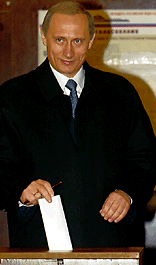Feb. 27-March 5, 2014, Current Events Lesson Plan
Current Event:
On February 22, Viktor Yanukovych, Ukraine’s ousted president, fled Kiev, the Ukrainian capital. Yanukovych had earlier tried to move Ukraine closer to Russia. Following the collapse of Yanukovych’s government, Russian troops cut Ukrainian access to the Crimean Peninsula, and, in effect, took control of Crimea, the southernmost region of Ukraine. Russia’s president, Vladimir Putin, stated that Russia had the right to protect its interests and those of Russian speakers not only in Crimea but also in east Ukraine. Crimea as well as eastern Ukraine is largely populated with Russian-speaking people with close historic and cultural ties to Russia. However, western Ukraine is largely populated with Ukrainian-speaking people who want Ukraine allied with the European Union and the West. British and American diplomats urged Russia to pull back its forces in the Crimea. On March 5, representatives from Russia, the United States, and the European Union met to try to resolve the political crisis.
Objective:
Vladimir Putin has served as the president of Russia since 2012. Putin was born in Leningrad (now St. Petersburg) on Oct. 7, 1952. After earning a law degree from Leningrad State University, Putin served in the KGB, the intelligence-gathering and security force of the Soviet Union, from 1975 to 1990. In 1990, Putin returned to Leningrad from KGB service in East Germany and worked in the city’s government. In 1998, Putin became head of the Federal Security Service, a successor to the KGB. The following year, Boris Yeltsin chose Putin as prime minister. Putin became acting president of Russia on Dec. 31, 1999, after Yeltsin resigned. Putin was elected to the office in March 2000 and was reelected in 2004. When his second term ended, he chose his ally Dmitry Medvedev as his successor. Medvedev then chose Putin to serve as prime minister. Putin was reelected president in 2012. The Behind the Headlines news stories and related World Book articles explore Vladimir Putin, Russia, and Ukraine.

President Vladimir Putin sent thousands of Russian troops into neighboring Crimea, the southernmost region of Ukriane.(AP/Wide World)
Words to know:
- Boris Yeltsen
- Crimea
- Dmitry Medvedev
- KGB
- Kiev
- Moscow
- Russia
- Ukraine
- Union of Soviet Socialist Republics (U.S.S.R.)
- Viktor Yanukovych
- Vladimir Putin
Discussion Topics:
1. Ask your what they know about Russia. (Students might say Russia is the largest country in area; Moscow is Russia’s capital and largest city; most Russians live in the western–or European–part of the country; Siberia makes up about 75 percent of Russia’s territory; Russia is known for its long and bitter winters.)
2. Ask your students to debate, “When is war justified?”
3. Ask your students to use World Book’s Timelines feature to view the History of Russia timeline. (Students may also want to use the “History” section of World Book’s Russia article for help.)


